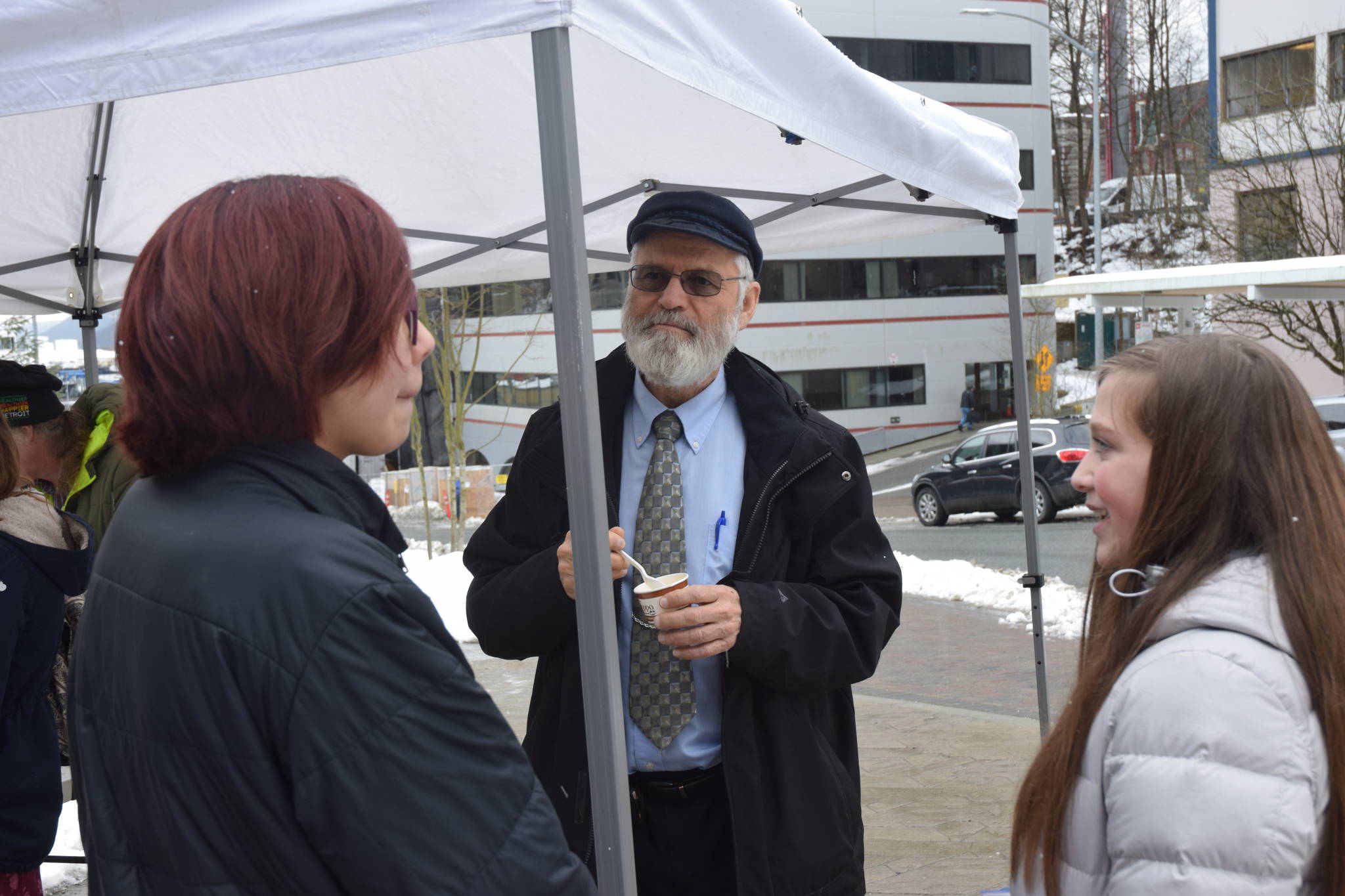From Unalakleet to Ketchikan, youth from across the state came to the Alaska State Capitol last week to advocate for four bills aimed at solving Alaska environmental issues.
Alaska Youth for Environmental Action (AYEA) asked adults to address the issues they see in their home environments across the Last Frontier. From Tuesday through Friday, they met with legislators in Juneau to push for updates to salmon habitat protections (House Bill 199); increased protections for wolves near Denali National Park (HB 105); the creation of a climate change response commission (HB 173), and curiously, a bill protecting net neutrality (HB 277).
On Friday, they celebrated their progress at lunch in front of the Capitol. Kyle Hasse, a junior from the Mat-Su Career and Technical High School, said the week surprised him. He wasn’t expecting to have as much of an impact as he felt the group did.
“I was shocked by how much legislators listened to us,” Hasse said.
Juneau homeschool senior Seb Kurland agreed. She’s seen the Mendenhall Glacier recede in her 15 years in Juneau, something she’s grown to expect with climate change. What she wasn’t expecting to get so much face time with lawmakers.
Kurland said she was “proud to have representatives and senators who acknowledge the youth voice.”
A total of 16 students came to the capital city as this year’s delegation of AYEA activists. AYEA is celebrating its 20th year, said Program Coordinator Allison Barnwell, herself a former AYEA member.
Though the group has been around for some time, current students said they were feeling particularly inspired this year by the impact made by students of Marjory Stoneman Douglas High School, who took to the airwaves and social media to affect gun regulation after a school shooting at the Parkland, Florida high school killed 17.
“It gives youth the idea that they have a voice,” said Eve Downing, a sophomore at Soldotna High School.
“On a more national scale, the power of the youth voice has been realized and taken more seriously,” said Colony High School senior Krystyn Kelly.
The group’s policy ideas were chosen by a group of student trainers, an experienced group of AYEA members who coach other students on public advocacy. Students are taught to write letters to the editor, how to communicate with lawmakers and how to stay informed.
They also learn how to advocate from a sense of place, Kelly said. With students from every corner of the state, AYEA students are encouraged to speak about what they’re seeing at home to give lawmakers a sense of how they’re personally impacted by environmental policy.
Summer Sagoonick, a junior at Frank A. Degnan High School in Unalakleet, said she sees old rusty barrels and pollution in a stream near her family’s cabin, which she believes were left over from National Guard activity in the area. She said her family now tries not to harvest from the stream anymore.
Other students talked about concerns over Pebble Mine, climate change-induced erosion and the loss of salmon habitat.
AYEA’s mission is mainly environmental, but the group has an inclusive view when deciding what policies to back. They don’t limit themselves, Kelly explained.
The push for protections for net neutrality, she said, is partly about helping rural residents. Many rural residents don’t have access to more than one internet service provider (ISP). Changes to net neutrality laws would mean ISPs would be able to charge more to rural residents, something Kelly said would affect access to education and jobs.
“The internet impacts so much of what young people do, especially in rural communites,” she said.
• Contact reporter Kevin Gullufsen at 523-2228 or kgullufsen@juneauempire.com. Follow him on Twitter at @KevinGullufsen.

